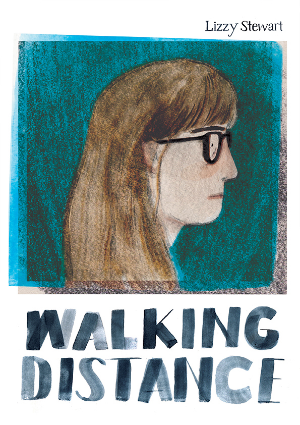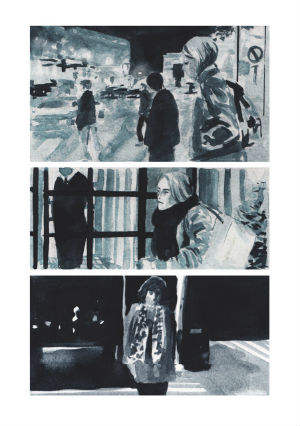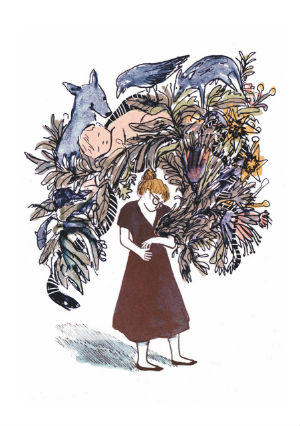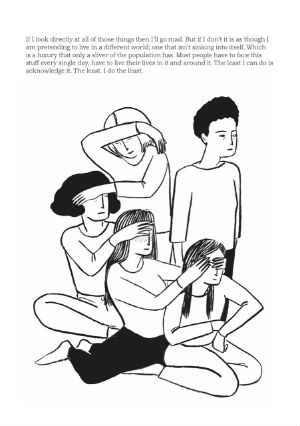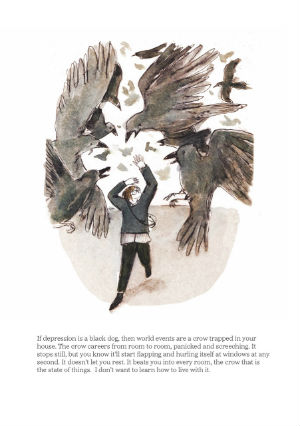To call Lizzy Stewart’s Walking Distance “a book about walking” seems both an elegantly succinct if obvious encapsulation of its contents and yet also a woefully inadequate summation of its existential explorations. Published by Avery Hill Publishing – in a year when the London outfit’s output constantly reminded us of the astonishing diversity of storytelling approaches possible in graphic narrative – this slim hardback volume combines prose, comics and illustration in an affecting meditation on the simple process of perambulation and the thoughts that come to Stewart in the course of that exercise.
Lizzy Stewart is one of comics’ great observers of those seemingly smaller moments of human existence; experiences that resonate because elements of the profoundly recognisable are embodied in their apparent inconsequentiality. It’s something she’s proven so adept at in comics like Dog Walk and Hannah and Alys at the End of the World. Here, taking sequences of women walking in some of her favourite films as an initial springboard, Stewart embarks on a piece of self-consideration that fittingly meanders with a naturalistic and organic procession of ideas and careful contemplation.
It’s a graphic essay that touches on identity, expectations, gender and place in the world; on who she is, where she is going in life and how others see her. Walking becomes a reflective space as Stewart ruminates not just on her own existence but the changing world around her. Her tone is not so much self-deprecating as simply unrelentingly honest, unafraid to pose difficult questions with a quiet but uncompromising intensity.
This internal monologue is so effective in its delivery for Stewart’s ever shifting presentational approach and contrasting but complementary use of multiple mediums. That juxtaposition – of environment in illustrations and thoughts in text – provides a separation of narrative tools that detaches the two but never distances them. It’s a compartmentalisation that allows us to experience different aspects of Stewart’s journey on alternative sensory levels without ever ignoring their inextricable links.
And that’s very much Stewart’s greatest strength as a communicator here. She knows when to discuss, debate and dissect at length, and when to let a sudden sidestep into silent visual metaphor – sometimes blunt and stark, sometimes beautifully composed – convey the nuance of a moment on an entirely different emotional level and with a far more immediate impact. On those latter occasions, Stewart’s often haunting imagery fostering another layer of intimacy between author and reader.
This is a book that the canny reader will revisit, and revisit often, finding new things to relate to and explore on each re-reading. While Stewart’s reflections here have their own personal specificity the essence of her explorations of self, purpose and being have a universality we can all connect with. Avery Hill released comparatively fewer books in 2019 to the preceding twelve months but in terms of a statement of intent of the kind of medium-pushing work that represents their publishing ethos it was arguably their most important year to date. Walking Distance is a fine example of that and it underlines once again what a truly remarkable communicator Lizzy Stewart is.
You can buy Walking Distance online here priced £10.99. For more on Lizzy Stewart’s work visit her website here and follow her on Twitter here and Instagram here.
Review by Andy Oliver





